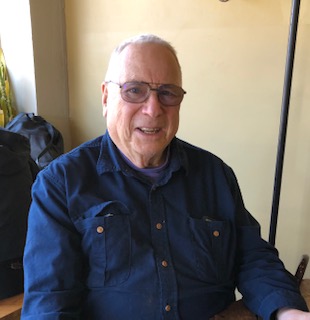Opinion: The Council at One Year -THE BURDEN OF THE CHARTER: THE VOICE OF THE PUBLIC


Amherst’s new governance charter is finishing its first year, and perhaps it is timely to take stock of its ups and downs. I hope others will be doing this too, since I have become rather remote from town government. My remoteness is pertinent to the topic, though. Part of it is due to age, but part of it isn’t. I tried dutifully to follow town Council meetings on ACTV at the beginning, but have fallen off my resolution. I am pretty much dependent on The Indy and the Gazette/Bulletin, and thank goodness for The Indy and the commitment of its small group of reporters to deep reporting on the workings of town government.
In a deeper sense, my remoteness is built into the new charter. I am writing this in a week when the Town Council is holding two “listening sessions” in the midst of the clean-up from a snow storm. I eagerly look forward to the reporting about these sessions, which will address the four major capital projects on the horizon — fire station, DPW depot, elementary school, and library. These listening sessions are required by the charter, but the attendance of councilors is not required, nor is any response to the public’s ideas required. As I said, I look forward to the reporting about these sessions but I look forward more eagerly to the council’s response to them. Will they comment on ideas that have influenced their thinking? Will any of the public’s ideas, in fact, have impact on their thinking? Do they really want to hear from the public?
I ask these somewhat rhetorical questions as a veteran of Charter Commission listening sessions, once as a commissioner and three times as a vocal member of the public. Listening sessions provide the semblance of public input but not the reality. They are part of a barely disguised intent to shield town bodies from the disruption of public opinion. In the new Charter they are part of a scheme to make public input into decision-making harder and more obscure.
In large measure, my remoteness is an indication of the charter’s success. To be sure, the charter mandates that councilors hold meetings with constituents in their districts, and perhaps council decisions have been influenced by such meetings; it is impossible for me — or anyone — to know. I don’t know whether meetings have in fact been held in all districts. I am not aware of meetings being held in my district (District 2, a geographically absurd district), but perhaps I missed notification of them. It sounds very democratic, these district meetings, but in fact there is something of “divide and conquer” about them. Many of the residents whose ideas I have come to be most interested in live in other districts and there is no way for me to learn of them, or learn from them, or comment on them in the kind of dialogue that has been so helpful in our previous form of government. District meetings are important ways of dealing with district issues but unsatisfactory ways of dealing with town-wide issues.
Town Council has very little capacity for hearing from, much less responding to, public comments. This in spite of the clear intention of the council president to allow as much public comment as possible. But it is hardly possible in meetings which are routinely over four hours in length and when councilors sit on standing committees whose meetings are often just as long. It is perhaps understandable that councilors sometimes get impatient with public comment. This is not their fault; it is the fault of the charter, which gives the Council the final say about everything. And that means that thirteen councilors can have their say about everything. Every week. I am full of admiration for the councilors; I don’t know how they do it. And I don’t think they should have to do it.
A government with no separation of powers has no real capacity to listen because it really has no need to listen. I would love to be proven wrong—to learn that the listening sessions this week led to constructive dialog between councilors and residents—but I fear that they will turn out to be more like the “bread and circuses” of the old Roman Republic, ways of giving residents the semblance of influence and keep them out of the council’s hair.
What can be done about this? Over the past year I am aware of four approaches to giving residents not only a voice but also an influence in this new government. One is the admirable North Amherst District One Neighborhood Association (DONA). I understand that a similar neighborhood association is now active in District Five. These associations have the potential of discussing and taking positions on town actions that affect their neighborhoods. I don’t know that they have actively taken positions yet and asked their councilors to represent those positions in council discussions, but that would seem to be an important next step.
Another approach is that taken by Amherst Forward, a group of residents that seeks not only influence but also control of town boards and committees. Amherst Forward could be a tremendous force for good if it would abandon its standing as a Political Action Committee (PAC) and emphasize its effort to develop, discuss, and share points of view across the voting districts in town.
A third approach was offered to the Town Council early in the year on behalf of the defunct Town Meeting Advisory Committee (TMAC), which never had an opportunity to exist under the old government. Meg Gage offered a version of TMAC which would be a part of town government. In several commentaries I offered a version of TMAC which would be independent of town government. The Council showed no interest in either, which is too bad, and I wonder whether they would be more amenable now, when they have a greater understanding of the burden under which they must function.
Finally, The Amherst Indy—this on-line paper—could and should become a forum for residents to talk about the issues of the day in town. It offers superb factual reporting of board and committee meetings, numerous opinion pieces, and general information about town government. What it does not yet have is a readership willing to comment on its content. Many remember Larry Kelley’s blog with affection, and while many disagreed with his positions, many also profited from his willingness to accommodate disagreement in the comments section. I know that The Indy wants to host a comment section in that spirit and it provides a unique opportunity for residents to speak their mind about town matters. The new town government does not provide that opportunity, at least not yet.
